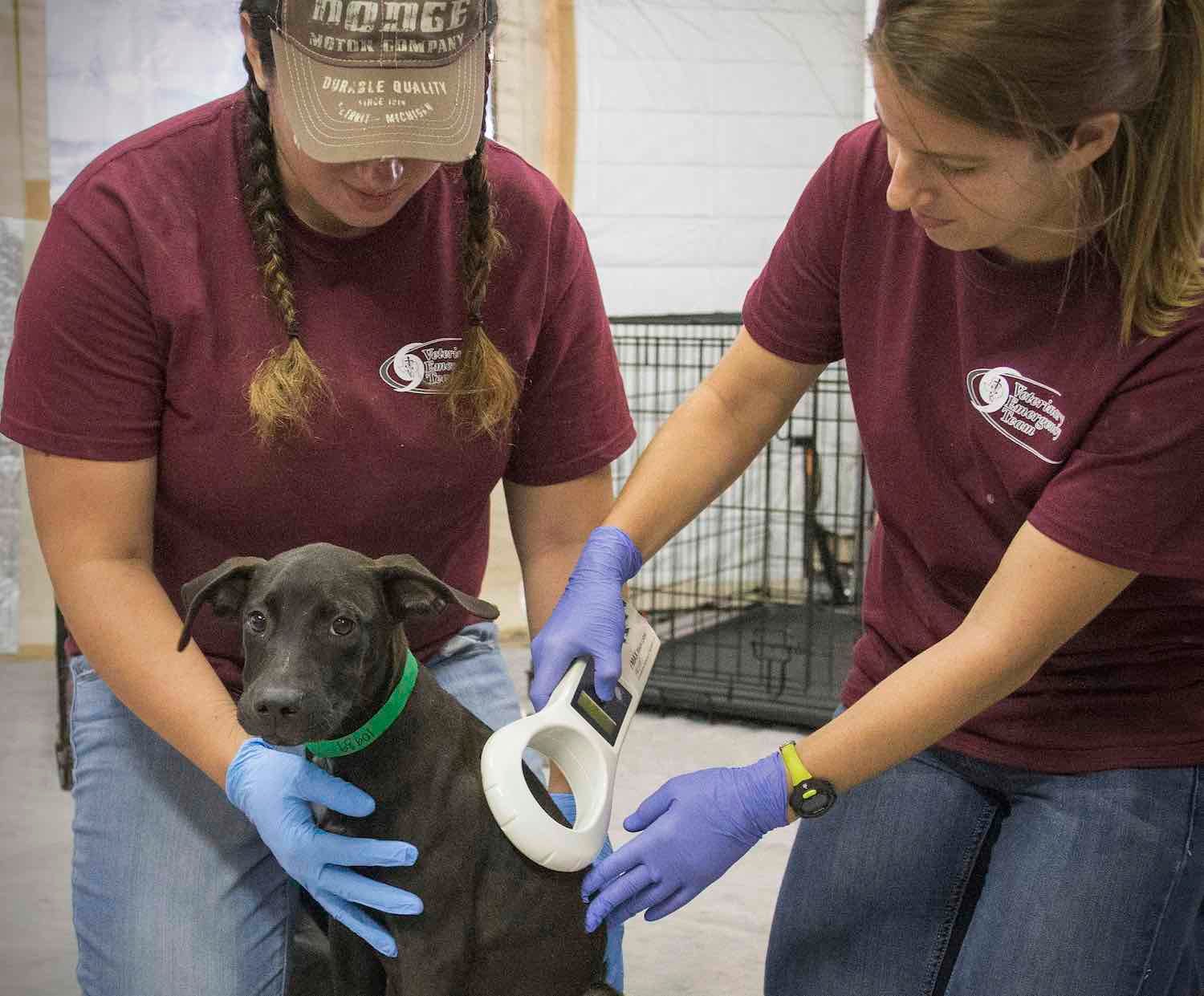Hurricanes, fires and tornadoes: How to protect your pets during an emergency
When faced with an emergency, everyone needs to know how to protect their family, their home, and, let's not forget, their pets. Our furry friends rely on us to protect them, especially during times of disaster.
Dr. Wesley Bissett, an associate professor at the Texas A&M College of Veterinary Medicine & Biomedical Sciences and director of the Veterinary Emergency Team (VET), advises pet owners to prepare in advance for an emergency situation to provide the best possible outcome, not only for your family, but also for your pets.
During times of disaster—be it a hurricane, wildfire, or tornado—people experience physical, economic, and psychological devastation. The loss of a pet can significantly add to that devastation.
As pet owners prepare for large-scale emergencies, it is critical to include their pets, both large and small, in their family emergency plan and especially for the possibility of evacuation.
"Monitor news channels and public information from governmental entities when risk is heightened," Bissett said. "Obey evacuation orders and if possible, evacuate early."
Evacuation is a common occurrence for those in the midst of a natural disaster, so, to prepare for evacuation, pet owners should "have kennels available that are appropriate for travel and make sure your animals are trained to spend time in them," Bissett said.
Bissett also recommends training pets to come on command and to have leashes and other equipment easily accessible. Pets trained to travel will be less stressed in the event of an emergency evacuation.
If you and your pet are separated, having them microchipped and the information appropriately registered can help ensure their safe return. The American Veterinary Medical Association (AVMA) says that microchipped pets are returned to their owners about 52 percent of the time, whereas pets without microchips are returned about 21 percent of the time.
Not only should homeowners keep an emergency kit for themselves in the event that evacuation is necessary, but Bissett says pet owners should prepare a kit for their pets, too. He recommends the following items for your pet kit:
• Five to seven days' worth of food
• Three to five days' worth of water
• Two-week supply of your pet's medications
• Kennel or crate
• Favorite toy
• Favorite bed
• Coggins papers (for horses)
• Health summary from your local veterinarian
Sudden changes in a pet's environment can cause them to be anxious and exhibit changes in behavior. It may take some time for pets to adjust to the changes in their environment, but having a plan in place as well as familiar items can help in the transition.
"Recognize that your pets will be just as stressed as you are, so try and provide quiet, stress-free situations for them," Bissett said."Pets may react differently for a period of time, so take things slow and allow them to adjust to their new normal."
Pet Talk is a service of the College of Veterinary Medicine & Biomedical Sciences, Texas A&M University. Stories can be viewed on the web at vetmed.tamu.edu/news/pet-talk. Suggestions for future topics may be directed to editor@cvm.tamu.edu.



